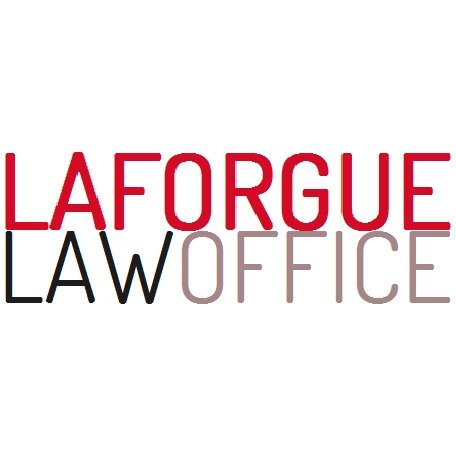Best Tax Increment Financing Lawyers in Paris 17 Batignolles-Monceau
Share your needs with us, get contacted by law firms.
Free. Takes 2 min.
List of the best lawyers in Paris 17 Batignolles-Monceau, France
About Tax Increment Financing Law in Paris 17 Batignolles-Monceau, France
Tax Increment Financing (TIF) is a public financing method used as a subsidy for redevelopment, infrastructure, and other community-improvement projects in Paris 17 Batignolles-Monceau, France. This technique leverages the increased property tax revenue from new developments to finance the initial capital improvement. In Paris 17, TIF is strategically important for stimulating economic growth and revitalizing underdeveloped or economically challenged areas.
Why You May Need a Lawyer
Engaging a lawyer skilled in TIF law can be essential for several reasons:
- Understanding the complexity of TIF agreements and their implications on property taxes.
- Negotiating terms of redevelopment projects effectively with municipal authorities.
- Ensuring compliance with local regulations and avoiding legal pitfalls.
- Resolving disputes involving stakeholders or the local government.
- Advising on the financial aspects and long-term impacts of TIF projects.
Local Laws Overview
The application of TIF in Paris 17 Batignolles-Monceau is subject to a unique set of legal frameworks influenced by both national policies and local municipal laws. Key aspects include:
- Designation of TIF districts by local government authorities.
- Requirements for public hearings to ensure community involvement.
- Allocation of increased tax revenues solely for approved redevelopment projects.
- Restrictions on using funds for certain types of land use or improvement.
- Mandatory impact assessments to evaluate environmental and social effects.
Frequently Asked Questions
What is the primary purpose of TIF in Paris 17?
The main goal of TIF in Paris 17 is to stimulate economic development in underutilized areas by financing necessary infrastructure and redevelopment projects.
Who can propose a TIF project?
Typically, municipal authorities or private developers can initiate a TIF project, subject to approval by the local government.
How does TIF impact my property taxes?
TIF itself doesn't directly affect your property taxes; however, it uses the incremental tax revenue generated by increased property values from redevelopment efforts.
Are there restrictions on how TIF funds can be used?
Yes, TIF funds must be used for public infrastructure and redevelopment purposes as outlined in the initial agreement.
How long do TIF districts typically last?
The lifespan of a TIF district varies based on the project's scope and local regulations but generally spans 15 to 25 years.
Can TIF be used for residential projects?
In Paris 17, TIF can support mixed-use developments but typically focuses on commercial, infrastructure, and public facility projects.
What community oversight exists for TIF projects?
Public hearings and consultations are required to ensure transparency and community involvement in TIF projects.
How are TIF projects selected?
Projects are chosen based on their potential economic impact, feasibility, and alignment with regional development goals.
Are there any financial risks associated with TIF?
Yes, risks include project delays, lower-than-expected property value increases, and potential default on financing obligations.
Can TIF debt impact local government finances?
While TIF funding is structured to minimize financial risk to local governments, poor project execution can strain municipal finances.
Additional Resources
For further assistance, consider reaching out to the following resources:
- City Hall of Paris 17 - They provide detailed information on local redevelopment projects.
- Chamber of Commerce, Paris - Offers guidance on economic development incentives and support.
- Local Real Estate Associations - Can provide insights and contacts for legal and financial advice.
Next Steps
If you're considering a TIF project or facing legal challenges related to Tax Increment Financing in Paris 17 Batignolles-Monceau, it's advisable to consult with a legal professional experienced in French real estate and municipal law. Begin by:
- Compiling all relevant documents, such as project plans, financial forecasts, and land use agreements.
- Scheduling consultations with law firms specializing in real estate or public financing.
- Attending local government meetings or public forums to seek advice and gather information.
Taking these steps will help you navigate the complexities of TIF projects and safeguard your interests effectively.
Lawzana helps you find the best lawyers and law firms in Paris 17 Batignolles-Monceau through a curated and pre-screened list of qualified legal professionals. Our platform offers rankings and detailed profiles of attorneys and law firms, allowing you to compare based on practice areas, including Tax Increment Financing, experience, and client feedback.
Each profile includes a description of the firm's areas of practice, client reviews, team members and partners, year of establishment, spoken languages, office locations, contact information, social media presence, and any published articles or resources. Most firms on our platform speak English and are experienced in both local and international legal matters.
Get a quote from top-rated law firms in Paris 17 Batignolles-Monceau, France — quickly, securely, and without unnecessary hassle.
Disclaimer:
The information provided on this page is for general informational purposes only and does not constitute legal advice. While we strive to ensure the accuracy and relevance of the content, legal information may change over time, and interpretations of the law can vary. You should always consult with a qualified legal professional for advice specific to your situation.
We disclaim all liability for actions taken or not taken based on the content of this page. If you believe any information is incorrect or outdated, please contact us, and we will review and update it where appropriate.








